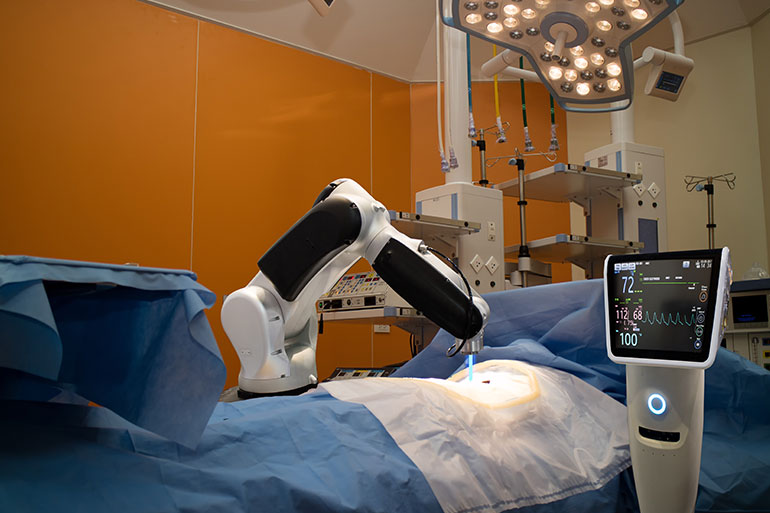
AI Revolutionizes Medical Diagnosis: Enhancing Precision and EfficiencyAI Revolutionizes Medical Diagnosis: Enhancing Precision and Efficiency Artificial intelligence (AI) has emerged as a transformative force in the field of medicine, revolutionizing the way medical professionals diagnose and treat diseases. By leveraging advanced algorithms and machine learning techniques, AI is enhancing the precision, efficiency, and overall quality of medical diagnosis. Precise and Accurate Diagnosis AI algorithms can analyze vast amounts of patient data, including medical records, lab results, and imaging scans, to identify patterns and correlations that may be missed by the human eye. This allows for more accurate and precise diagnoses, reducing the risk of misdiagnosis and improving patient outcomes. For example, AI systems have been developed to detect early signs of cancer and Alzheimer’s disease, enabling timely intervention and increasing the likelihood of successful treatment. Enhanced Efficiency AI can streamline the diagnostic process, reducing the time it takes to arrive at a diagnosis. By automating repetitive tasks and providing real-time analysis, AI frees up healthcare professionals to focus on complex cases and provide more personalized care to patients. This improved efficiency leads to shorter wait times, increased patient satisfaction, and reduced healthcare costs. Personalized Treatment Planning AI can help tailor treatment plans to individual patient needs. By analyzing genetic data, lifestyle factors, and previous medical history, AI algorithms can identify the most appropriate treatments for each patient. This personalized approach enhances treatment efficacy and reduces the risk of adverse side effects. For example, AI is being used to develop personalized cancer therapies that target individual tumor characteristics, improving patient outcomes and survival rates. Remote and Accessible Diagnosis AI-powered diagnostic systems can be integrated into telemedicine platforms, enabling remote and accessible medical care. Patients in remote areas or with limited mobility can access expert medical advice and receive diagnoses from the comfort of their own homes. This reduces geographical barriers and improves access to high-quality healthcare services. Challenges and Considerations While AI holds immense potential in medical diagnosis, it is essential to address potential challenges and ethical considerations. These include data privacy and security, bias in algorithms, and the need for robust validation and regulation. It is crucial to ensure that AI systems are developed responsibly, with clear ethical guidelines and oversight mechanisms in place. Conclusion AI has the power to transform medical diagnosis, enhancing precision, efficiency, and the overall quality of patient care. By leveraging advanced algorithms and machine learning techniques, AI is providing healthcare professionals with valuable tools to detect diseases earlier, tailor treatments more effectively, and improve patient outcomes. As AI continues to evolve, its role in medical diagnosis is expected to expand, further revolutionizing the healthcare landscape and improving the well-being of individuals worldwide.
Posted inNews